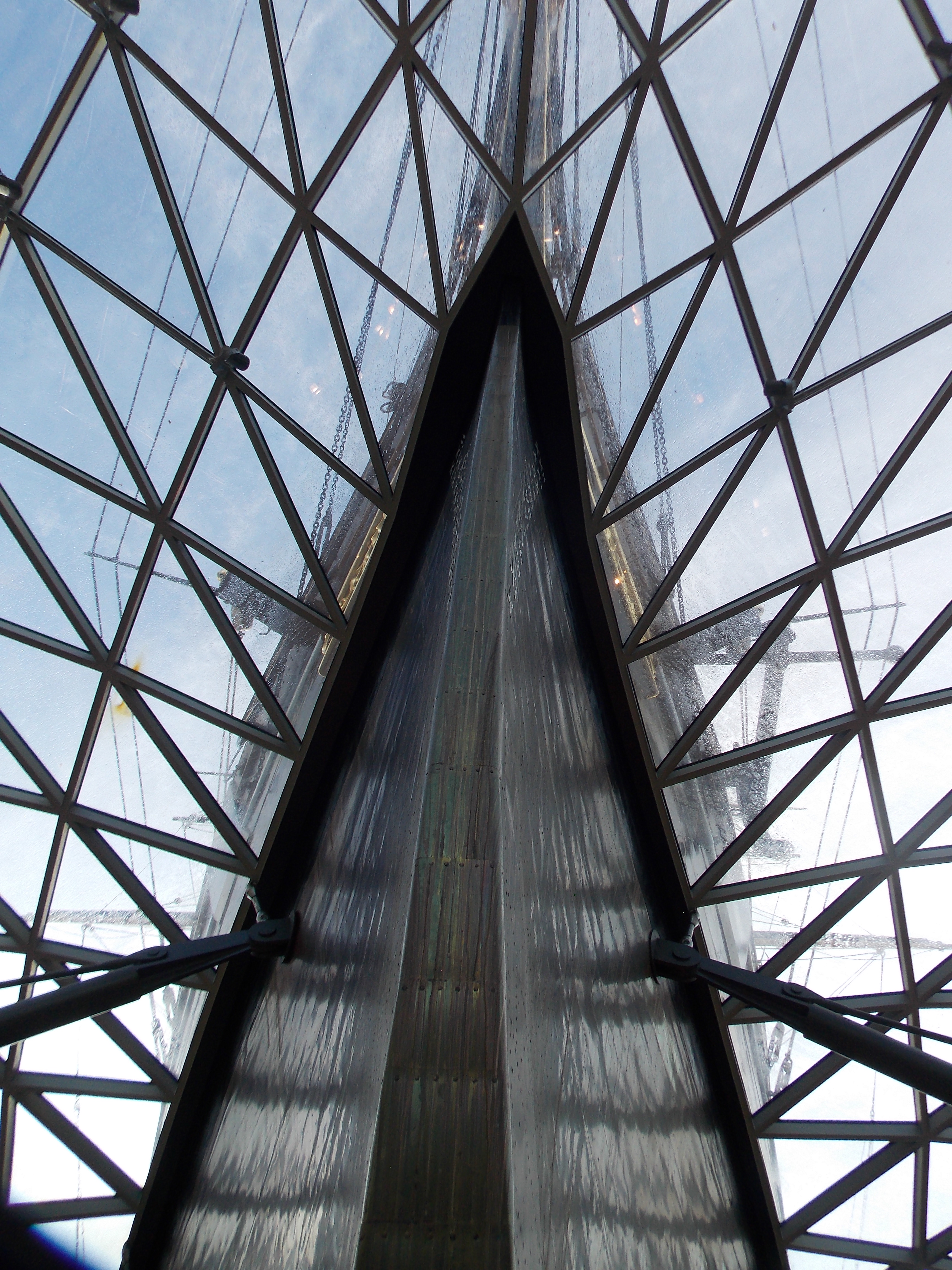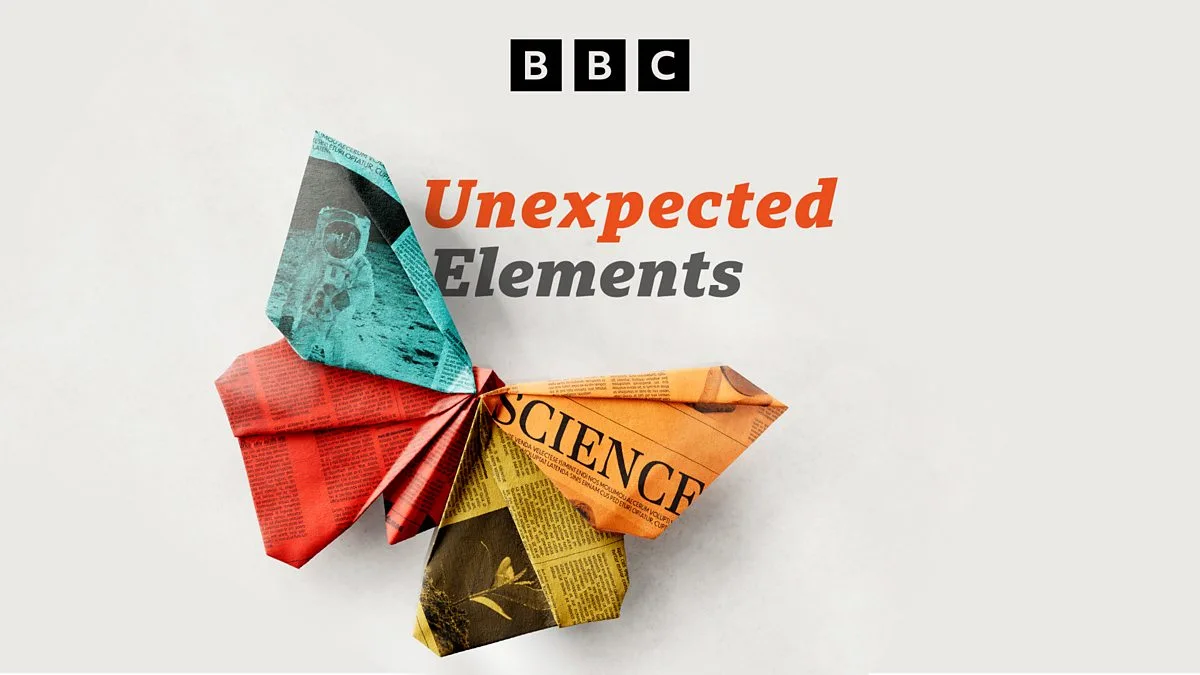- 41 Posts
- 203 Comments

 2·8 hours ago
2·8 hours agoI had one of those great Iiyama CRTs – and still do, in storage. I heard when LCDs emerged that LCDs cannot achieve the refresh speeds and color richness of CRTs and that CRTs were still the best for gaming. Not sure if that still holds true. But as a kid, I embraced the Iiyama.
Anyway, I do not imagine desk space can be a reason people are tossing out LCDs.

 2·7 hours ago
2·7 hours agoIMO if something is particularly inefficient, it’s better off not being used if there’s a substantially more efficient alternative to do the same thing.
It’s hard to get a clear-cut measurement and compare the different kinds of eco impacts like that.
But also consider this: the avg. age of a car bought in Africa at the time of purchase is 21 years old. All these people buying EVs think they are taking a gas-burner off the road, but who destroys their car? They sell it. Then it goes to Africa where it continues to pollute for decades more.
If you dump your e-waste in a reckless manner, it ends up in a landfill where the toxins pollute ground water. Or it goes to a trash heap in a poverty-stricken part of India where someone salvages it.
If you dump your e-waste in a responsible manner, the chain of handlers will repair if needed, and ultimately get the working products on the shelves of charity-operated 2nd-hand shops.
In my particular case, I have no TV and don’t watch TV. If I salvage a TV, I would likely watch it occasionally. So I think it’s clear cut in my situation the usage harm would be shadowed by production harm. But note as well my ethical values are not limited to ecology. There is an enshitification of products and digital rights at hand as well. Buying a new electronic appliance supports the makers of shitty cloud-dependent “smart” devices that have supercharged designed obsolecence. So even in neglecting the environment, it’s an injustice to support the makers of electronic goods today.

 2·9 hours ago
2·9 hours agoWhen you host a neighborhood party and give neighbors access to your house, they will all feel right at home.
All my furniture is salvaged from neighbor’s curbs. So I think if I hosted a local event everyone would find something that was theirs.

 6·1 day ago
6·1 day agoThat’s interesting indeed because only the 1st bullet would impede me from rescuing one. I avoid buying new electronics to large extent to mitigate excessive production and then disposal of e-waste.

 4·1 day ago
4·1 day agoI would say roughly ~40% of the TVs I see are visibly damaged, and I wonder if kids had destructive fun with it after it was set on the curb. If it’s damaged but the backlight works, one option might be to remove the LCD and leave the light diffuser in place, then use it as a light table (e.g. for stained glass work).
A portable testbed sounds like a good idea. Since you found a good one, I get the impression it might make sense for me to go grab battery + invertor and a laptop and test it before carrying it.

 3·20 days ago
3·20 days agoShit… sounds about right.
Although the /water is hot enough/ scenario could be addressed mechanically: bigger water tank, lower heating element raised and the heat pump heating the bottom exclusively where it could /always/ add heat because it would never be hot enough at the bottom.
(edit) after some thought, it would superficially make sense to get a factory water heater (tank) and not tamper with it at all. Just have a PV-powered HP heat water before it enters the stock water heater (in a tank or coil). Thus there could be 2 heat pumps (but for economy the stock tank would just be a simple non-heat pump type thus 1 HP). I guess this is still a dead idea anyway if it’s true that a PV cannot simply directly connect to a compressor.

 1·20 days ago
1·20 days agoWould the materials have much more of a footprint than geothermal installations? Because that slight 7° difference between below ground temp and above ground temps apparently justifies the labor, materials, and power to the circulators for harvesting geothermal energy. So this seems to be the same but adding a cherry on top – incorporating a heat pump to add to the energy of a geothermal system.

 2·20 days ago
2·20 days agoBecause of Google’s DoS attack, those of us in the open free world cannot reach Youtube. So would someone please explain the concept in text?
Is this it? → https://utahforge.com/2022/12/30/did-you-know-that-scottish-clubbers-use-dance-beat-to-generate-heat/
Seems like a great idea. Like using the body heat to boost geothermals.
Someone plz tell Massive Attack about this. Massive Attack has gone gung-ho on eco-friendly festivals (in places inaccessible by car). They might want to throw some indoor events with this tech.
(edit) from the article:
“An experienced DJ could get up to 600 watts with the right song at the right time.”
So IIUC that’s like ~1½ solar panels getting a full dose of UV, correct? I guess that’s not much. But nonetheless not something to throw away either. So during the day solar panels on the roof could heat the ground pipes and during the night the clubbers keep the system powered.
Would be fun for that power output to be measured, and then that power measurement could be a performance index on each DJ. You pay the DJ according to the power output they can produce. Though I guess that would screw over the ambiant / trip-hop DJs.

 24·1 month ago
24·1 month agoHave they thought this through? To install batteries that are much heavier than what the bus trip requires makes the bus less efficient. Research in the UK found that a bus carrying 5 people is about as efficient as 5 cars each carrying 1 person. That’s because of the weight of the bus. So the goal should be to fill the bus with people, not excessive batteries and overhead that need not move back and forth from A to B which then requires more riders to maintain the same efficiency.
Sure they need to store energy for to smooth out peak grid consumption but probably smarter to do that with stationary batteries – if they must use batteries. Another way to store energy: pump water to the top of a mountain and open a dam that turns a hydro turbine when they need the energy back.
from the article:
Pollution from buses and other vehicles contributes to chronic asthma among students, which leads to chronic absenteeism.
Seems like a stretch. Even if they can attribute chronic absenteeism to air pollution and keep a straight face, moving the pollution of a fleet of buses that makes 2 trips/day from the street to the power plant isn’t going to change the absenteeism by reducing asthma. This claim only signals a bit of desperation to get support.
 1·1 month ago
1·1 month agoIndeed I’ve seen basic checking accounts with no interest. Then the more feature-rich accounts which offer a number of perks at either a higher fee or higher requirements to offset the fee also include interest. That’s really backwards because an anti-feature is being bundled in. By giving up interest the client should get more features, not less.
 1·1 month ago
1·1 month agofees - either no fees, or fees are really easy to avoid
Try getting out of the paper statement fee at a CU. That’s an important one because when the enshitification of their tech crosses your threshold of tolerance, it’s important to have agency to instantly go back to analog. Having that power also creates pressure on them to not enshitify their tech in the first place.
Gratis paper statements seem much less common at CUs than commercial banks.
Also regarding fees: very hard to find CUs that give a zero FX fee when pulling cash from a foreign ATM. IIRC, there is only one CU in the US (Penfed?) that has fee-free foreign currency.
Chase is okay if you can reliably avoid fees
Unless you consider ethics. Chase is one of the worst.
You should never pay for a bank account, that’s just dumb.
I used to think that. But in my boycott on free technofeudal pushers (Facebook, Google, Amazon, etc) I’ve evolved to prioritize privacy (and thus control) over non-transparent exploitation of my data. Have you thought about why your billpay service is free? It’s outsourced, so the billpay service has to make money somehow. Of course they are selling your data. Google and Amazon want to know about people’s offline purchases so they know whether it traces to an online ad.
 1·1 month ago
1·1 month agoI also learned the hard way that Credit Unions are exempt from this
Wow… there’s a gem of knowledge for sure.
 11·1 month ago
11·1 month agoI don’t get why folks even care about interest rates when they are so negligably low anyway. When interest rates are ≤1%, I would rather get zero interest just to silence the excessive reporting, like a 1099-int for a couple dollars which serves as a kind of heartbeat signal for where your assets are kept and then having to pay your accountant to declare it. Not worth it. I would rather see the 1% go to a good cause, if not toward just improving the banking service.
 21·1 month ago
21·1 month agoI’m done with credit unions. They just create the illusion of a small org but then farm you out to big companies via outsourcing anyway.
- Most credit unions have outsourced just about every aspect of their business. They are like shell companies all working as many different façades to the same giant corporations. CUs in-house expertise doesn’t go far beyond their branding and marketing. Your sensitive financial info gets shared around with a handful of giant corporations while giving the illusion that you have the privacy benefits of a small CU.
- billpay outsourced to 1 or 2 different billpay services nationwide
- monthly statement generation: outsourced to the same few corps
- statement printing: outsourced, then they charge you for it
- Credit unions spam the shit out of whatever email address you supply, thus enabling all entities handling the email to see where you bank each time the CU decides to spam you. Commercial banks are better on this in my experience. I think commercial banks have calculated that spam just angers people and drives them off, whereas credit unions are either not diligent enough to make that calculation or they are assuming their small org appearance will go a long way in obtaining forgiveness.
- Most credit unions have put their website on Cloudflare in the past few years. Which means:
- Consumers are generally forced to expose their account credentials to a privacy-abusing tech giant (while agreeing to be accountable for damage stemming from credential leakage)
- Consumers are generally forced to expose to their credit union their approximate physical location every single time they connect to the website as a consequence of Cloudflare. Which means if they move outside of the CUs service area some CUs will notice that and even freeze/lock the account. They tend to admit directly in their privacy policy that they collect IP addresses specifically for geolocation tracking of their customers.
- Consumers are generally forced to expose to their ISP where they bank as a consequence of Cloudflare. And considering Trump overturned an Obama policy that required ISPs to obtain consent for collecting and selling customer personal data, there is nothing to stop your ISP from selling info about where you bank to data brokers and debt collectors. Biden did not reverse Trump’s privacy sabotage.
- Cloudflare can at any moment decide to block you for any reason arbitrarily, and suddenly your web access to your money is gone.
- Consumers who are behind CGNAT outside of their control are often blocked by Cloudflare. If a snot-nose script kiddie in your CGNAT pool decides to scrape some websites, CF’s excessive protectionism might kick in and block the IP which could go to you next, and you lose access to your money because CF overreacted to a harmless snotnose kid.
Being free from Cloudflare sometimes means you can login over Tor and avoid most of the problems above. OTOH many commercial banks also block Tor increasingly more frequently lately (because they also want to track your physical whereabouts). There may be some Cloudflare-free CUs that still permit Tor logins though it’s becoming harder to find them.
Gratis paper statements are important more than you realise:
If you cannot find a bank or CU that gives you the privacy of Tor, the best feature to look for is gratis paper statements and paper checks so you can scrap the website and take back your privacy. It’s more common to find gratis paper statements from banks than CUs. As enshitification of the web proliferates and more FIs join Cloudflare, gratis paper statements is an important safety net so you can ditch their tech the moment it goes sour.
Regarding apps:
Credit unions do not write their own software. You have just a few closed-source Google Playstore banking app makers who all the credit unions outsource to. Whereas every commercial bank reinvents the wheel with their own implementation. For me it’s a shitshow no matter what. I am not going to enter Google Playstore and tell Google where I bank and let Google track exactly which software version I have which also reveals what vulns I inherit, to then run a closed-source app that snoops on me in countless unknown ways. Fuck all that.
- Most credit unions have outsourced just about every aspect of their business. They are like shell companies all working as many different façades to the same giant corporations. CUs in-house expertise doesn’t go far beyond their branding and marketing. Your sensitive financial info gets shared around with a handful of giant corporations while giving the illusion that you have the privacy benefits of a small CU.

 1·2 months ago
1·2 months agoWell that depends on how equipped you are. One cool thing about compressors is you can straight up connect a PV directly to a compressor with no voltage regulators or anything. So if you have a simple setup like that, I can see up front cost effectiveness in storing ice. But if you already have batteries, and thus voltage regulators and all the costly intermediate components to make that possible, then I would agree… I might rather store it in lead acid batteries as that would be more versatile.

 1·2 months ago
1·2 months agoSounds like they would do well in Arizona, where the air is dry. IIUC swamp coolers were very popular in Arizona until ~20 years ago when temps increased so much that swamp coolers could not make enough difference (this is largely because more and more land became concrete, which reduced the effect of evaporative cooling the land mass). So a/c became more popular in AZ IIUC. But the dry air would still be dry.

 3·2 months ago
3·2 months agoGreat basic concept but I think I would benefit more for the stored cooling going toward ice cubes for mojitos.
I don’t imagine that a single family dwelling would benefit from the extra complexity of adding cold water pipes in all the floors of the house. Probably makes more sense for apartment buildings (or perhaps homes that already have hydrothermal floors for heating).

 1·2 months ago
1·2 months agoConsider this excerpt:
When the grid is extremely stressed, utility companies are sometimes forced to shut off electricity supply to some areas, leaving people there without power when they need it most. Technologies that can adjust to meet the grid’s needs could help reduce reliance on these rolling blackouts.
So grid-powered a/c can give the grid relief at peak times with this tech.
But indeed this tech on a PV-powered compressor seems sketchy. There are probably moments when the sun is hitting hard but the temp has not climbed up yet (sunrise) in which case it would be useful to store the energy. But I’m struggling to understand how the complexity of the system would be justified considering the overall efficiency is reduced as well. I wonder what proportion of time this system would be working in storage mode. If sunrise is 9am and peak heat is 2pm, maybe there’s ~2—4 hours of storage time potential.
OTOH, consider someone with a slightly underpowered PV. Maybe the energy storage can compensate for peak heat times when the PV output may be insufficient. Perhaps it would enable homeowners to spend less on PV panels.
fwiw, here is an emacs version:
https://codeberg.org/martianh/lem.el#headline-11
I think what would be most useful would be a usenet→lemmy gateway, so that rich catalog of usenet clients can be leveraged on Lemmy.












What do you mean by “good”? I see a constant stream of articles about EVs being enshitified with cloud-attached surveillance tech and vulnerable to unwelcome remote hacking. To privacy advocates and tech rights proponents this means the ones designed as EVs are worse.
If you mean efficient, I’d be tempted to say the difference would be negligible in the big scheme of things. Factory produced EVs are not only surveillance systems on wheels, they are more hackable by threat agents than they are by their owners. Whereas a converted EV is likely more conducive to a /right to repair/.
The best scenario I could envision is this:
You bring your car to shop of expert converters. You watch over their shoulder as they convert it. This serves as training to know your own car. And as well to know how the power generator is built. You drive away with an open source EV that you can fix yourself, pulling behind it a trailor with a power generator, which is then connected to the charging inlet of the EV.
Okay, that last sentence was a joke, to be clear… Some Teslas have been spotted pulling a power generator on a trailer which then plugged into the car. I hope that practice of towing a generator is not actually a serious trend.